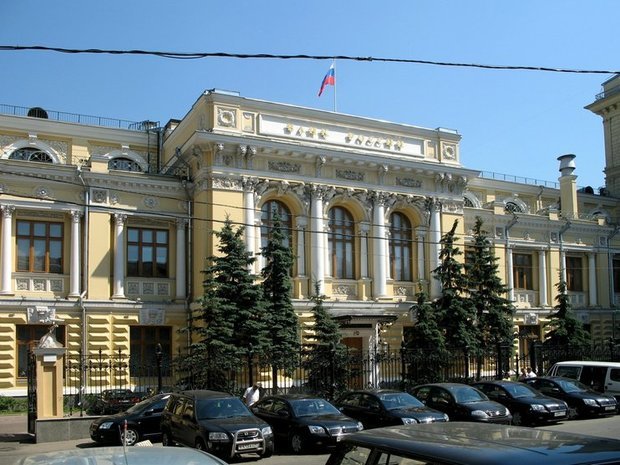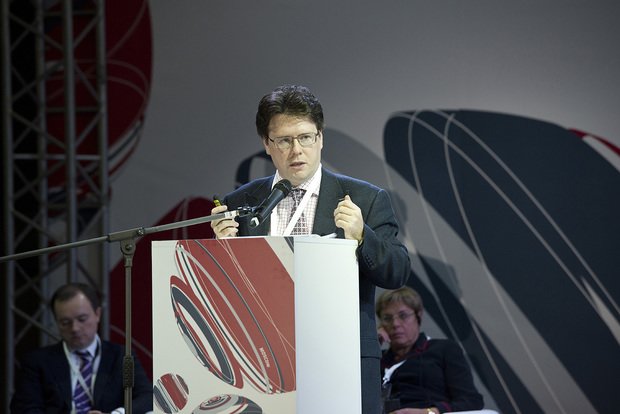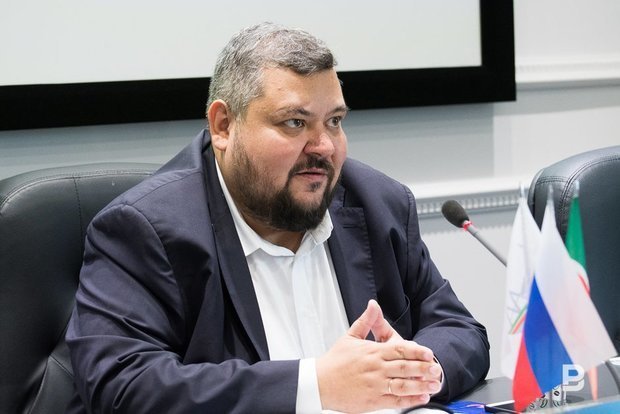Russian Central Bank running ahead of inflation. Nabiullina strikes a blow to prices and raises the rate
The Bank of Russia has raised the key rate again due to rising inflation risks. The increase in VAT is already affecting the prices
On December 14, the Bank of Russia raised the key rate for the second time since the end of 2014 — from 7,5% to 7,75%. The main argument for this was price hikes and price expectations. Inflation is rapidly approaching the target level of the Central Bank, businesses have already prepared for the upcoming increase in VAT, and the risks of new sanctions have recently added to a possible drop in oil prices. Read more in the material of Realnoe Vremya.
Who is faster
Exactly three months have passed since the previous increase in the key rate. Today's increase, thus, has been the second since December 2014. The rapidly growing inflation risks did not allow to do without it.
The probability that at the end of the year inflation will go beyond the target of the Central Bank has recently increased. In November, the annual increase in consumer prices was 3,8%, the highest since August 2017; inflation expectations for the next 12 months also rose to 9,8% after a significant decline a month earlier.
The Central Bank of Russia notes that the prices are already beginning to affect the planned increase in VAT — because of it, as well as the weakening of the ruble in previous months, the company is expecting inflation to accelerate.
According to forecasts of the Central Bank, this year inflation will be 3,9-4,2% and will continue to grow in the future (the peak will be in the first half of 2019). It is to return to the target of 4% only in 2020.
In addition, the regulator indicates the uncertainty of external conditions. Oil prices still remain above $55 per barrel, but there may be an excess supply in the oil market. Geopolitical risks and possible capital outflows from developing countries can increase volatility in financial markets and affect exchange rate expectations.

In addition, since 15 January 2019 the Central Bank decided to resume regular purchases of foreign currency under the budget rule, which will put additional pressure on the ruble.
All this shifts the balance of risks in the direction of inflation, said in a press release of the Central Bank, ''The rate hike is proactive and will limit the risks of consolidation of inflation at a level significantly exceeding the goal.''
Without unanimity
The current meeting of the Central Bank was no less exciting than the September one: there was no consensus among experts on what the decision on the rate would be on the market until the very last moment. Bloomberg consensus forecast suggested its preservation, but the advantage was small: 26 out of the 42 interviewed experts spoke in favour of the preservation.
Bloomberg noted that since the September meeting, when the Central Bank unexpectedly raised the rate, the markets have stabilized, but growing inflation and the risks of new sanctions have presented Nabiullina with a challenge. The uncertainty with resumption of purchases of foreign currency for the Treasury, which was suspended amid the falling ruble, added doubts.
Valery Weisberg, the head of research at Region Investment Group, one of the experts interviewed by Bloomberg, noted that the regulator would face a difficult choice. At the same time, he added that the rate increase by 0,25 percentage points would support the Russian currency.

Liza Yermolenko, an economist at Barclays Capital in London, is also inclined to believe that the rate will be more increased. The rapid approaching of inflation to the Central Bank target of 4%, as well as the growth of inflation expectations, indicates in favour of it.
Morgan Stanley economist Alina Slyusarchuk states that the decision on the rate will be associated with the resumption of purchases of foreign currency: the more active the Central Bank will return to the intervention, the more likely the rate hike is.
Bloomberg economist Scott Johnson, in turn, expected that the rate would remain the same: a potential 'storm' is not as terrible as it may seem, he said.
Analysts at Alfa-Bank in the review wrote that they expected a rate hike, given the trajectory of inflation and plans for the purchase of the currency. The increase was also predicted by the head of the centre for macroeconomic research of Sberbank, Nikolay Frolov, however, he specified that it could happen both at this meeting and at the next one, scheduled for 8 February 2019.
''We expected an increase — perhaps even higher,'' says president of Finam Investment Company Vladislav Kochetkov. ''Inflation in Russia is still at a fairly comfortable level, but the Central Bank is going to return to buying currency. Second, probably, there is a preparation for possible geopolitical shocks, new waves of sanctions that may occur next year. In this situation, the Central Bank is playing safe.''

According to Kochetkov, an increase in the rate of 0,25 points to some extent will help to smooth the pressure on the ruble from the resumption of currency interventions. However, this will not have a ''decisive'' effect. ''Another thing is that, together with the increase in the rate, buying up the currency, if it is soft, can have a stabilizing effect on the ruble exchange rate,'' Kochetkov says.
Of course, the resumption of interventions is an additional inflationary factor, but it is likely to manifest itself only in the second quarter of 2019, said analyst at Promsvyazbank Denis Popov. But the impact of the VAT increase may become noticeable at the beginning of the year, ''How long it will be and how strong — now it is unclear. Therefore, raising the rate, the Central Bank hits the growth of inflation expectations in advance.''